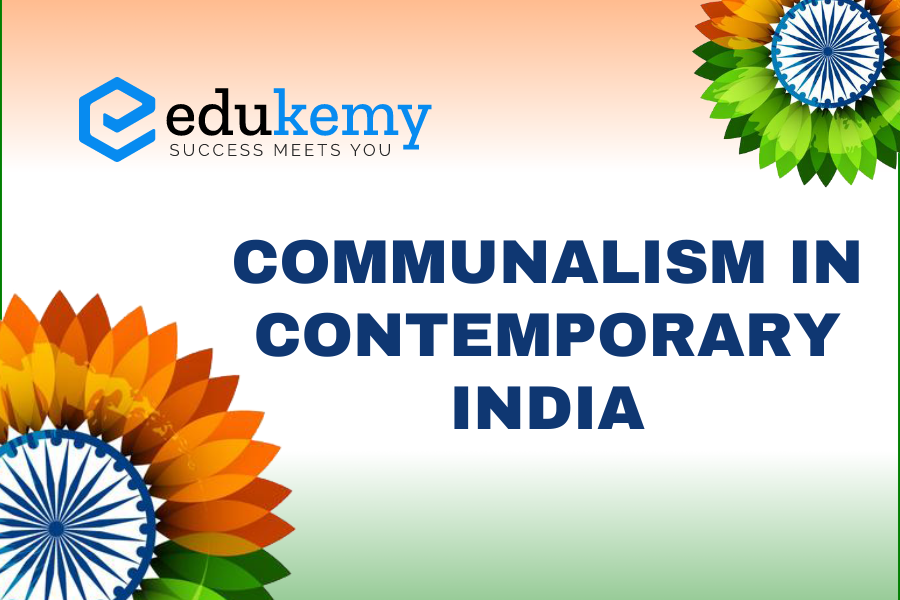
Communalism in contemporary India remains a significant socio-political phenomenon, deeply rooted in the country’s complex historical, cultural, and religious landscape. Defined by the promotion of exclusive identities based on religion or ethnicity, communalism often leads to tensions, conflicts, and polarization within society. Despite India’s pluralistic ethos and constitutional commitment to secularism, communal ideologies continue to influence politics, public discourse, and social interactions. The rise of religious nationalism and communal rhetoric, coupled with historical grievances and economic disparities, perpetuates communal divisions and challenges the nation’s social cohesion and democratic values. In navigating the complexities of communalism, India grapples with the dual imperative of preserving diversity while fostering unity, highlighting the ongoing struggle to reconcile competing identities and forge a more inclusive national narrative.
Attitudinal violence and structural violence continued to contribute immensely to physical violence in the forms of communal riots and mob lynching. Though the number of communal riots has declined, the discourse of communal violence driven by competing religious ideologies remains the same.
Thus, though it appears that the number of communal riots has declined, that in no way can be construed as decline in communal discourse leading to communal violence itself. While the number of communal riots is declining, the number of mob lynching is increasing. Mob lynching is an instrument to achieve the objective of sustained communal polarization by involving communal symbols like cow, the issue of love jihad, etc., targeting minority religious communities.
Newer issues are being used to heighten the discourse of communal violence- For instance, Violent protests and clashes erupted in Manipur as the Manipur High Court directed the State Government to grant Scheduled Tribe (ST) status to the Meitei community based on a 10-year-old recommendation.
If at all, through discriminatory legislations and increasing dismantling of democratic institutions which were expected to safeguard democracy, communal violence is taking deeper roots in our society.
Contents
- 1 FAQs
- 1.1 Q: What is communalism in contemporary India?
- 1.2 Q: What are the causes of communalism in India today?
- 1.3 Q: How does communalism affect Indian society?
- 1.4 Q: What measures can be taken to combat communalism in India today?
- 1.5 Q: What role does the media play in perpetuating or countering communalism in contemporary India?
- 2 In case you still have your doubts, contact us on 9811333901.
FAQs
Q: What is communalism in contemporary India?
Communalism in contemporary India refers to the politicization of religious identities, often leading to social divisions and conflicts along religious lines. It involves the exploitation of religious sentiments for political gain or to instigate communal tension.
Q: What are the causes of communalism in India today?
Several factors contribute to communalism in contemporary India, including historical grievances, economic disparities, political opportunism, and the spread of religious extremism. Social polarization, fueled by misinformation and propaganda, also plays a significant role in exacerbating communal tensions.
Q: How does communalism affect Indian society?
Communalism perpetuates distrust and animosity among different religious communities, leading to violence, discrimination, and marginalization. It hampers social cohesion, undermines secular values, and impedes the country’s progress by diverting attention from pressing socio-economic issues.
Q: What measures can be taken to combat communalism in India today?
Addressing socio-economic inequalities, promoting interfaith dialogue and understanding, enforcing strict laws against hate speech and incitement to violence, empowering marginalized communities, and fostering secular education are crucial steps in combating communalism. Additionally, political leaders and religious figures must refrain from exploiting religious sentiments for personal or political gains.
Q: What role does the media play in perpetuating or countering communalism in contemporary India?
The media can either exacerbate communal tensions by sensationalizing incidents or promote communal harmony by providing accurate and balanced coverage. Ethical journalism that prioritizes factual reporting and responsible commentary can help counter communal narratives and foster a more inclusive national discourse. Additionally, social media platforms should implement measures to curb the spread of hate speech and misinformation that fuel communalism.
In case you still have your doubts, contact us on 9811333901.
For UPSC Prelims Resources, Click here
For Daily Updates and Study Material:
Join our Telegram Channel – Edukemy for IAS
- 1. Learn through Videos – here
- 2. Be Exam Ready by Practicing Daily MCQs – here
- 3. Daily Newsletter – Get all your Current Affairs Covered – here
- 4. Mains Answer Writing Practice – here

